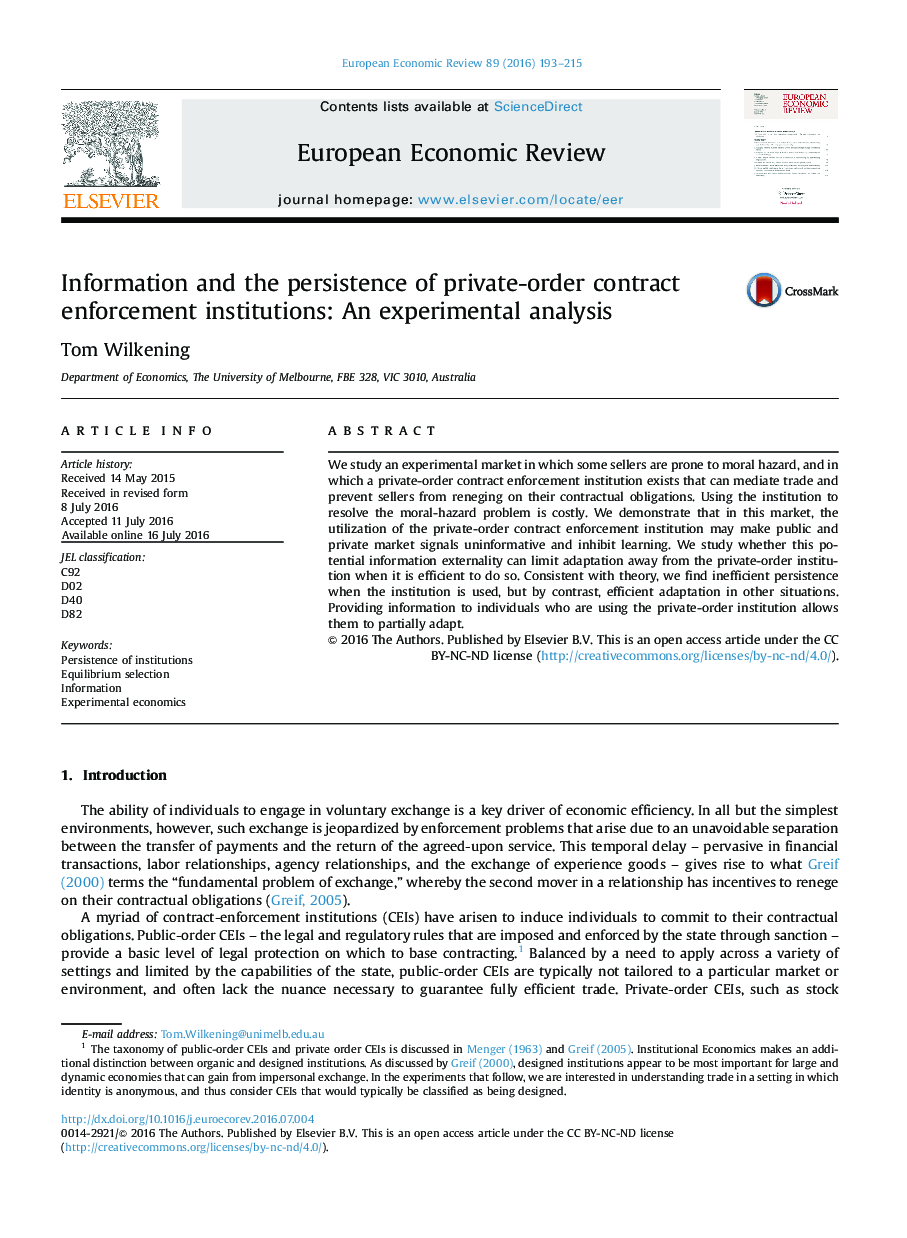| Article ID | Journal | Published Year | Pages | File Type |
|---|---|---|---|---|
| 5066452 | European Economic Review | 2016 | 23 Pages |
We study an experimental market in which some sellers are prone to moral hazard, and in which a private-order contract enforcement institution exists that can mediate trade and prevent sellers from reneging on their contractual obligations. Using the institution to resolve the moral-hazard problem is costly. We demonstrate that in this market, the utilization of the private-order contract enforcement institution may make public and private market signals uninformative and inhibit learning. We study whether this potential information externality can limit adaptation away from the private-order institution when it is efficient to do so. Consistent with theory, we find inefficient persistence when the institution is used, but by contrast, efficient adaptation in other situations. Providing information to individuals who are using the private-order institution allows them to partially adapt.
